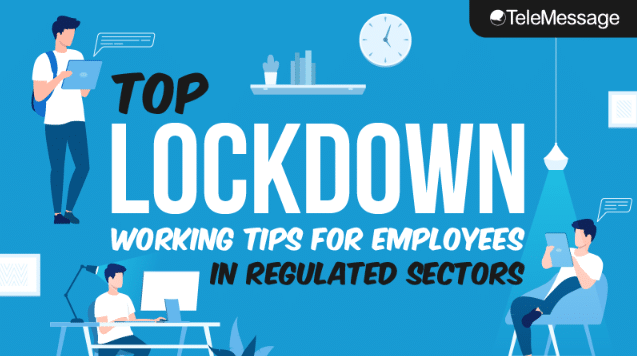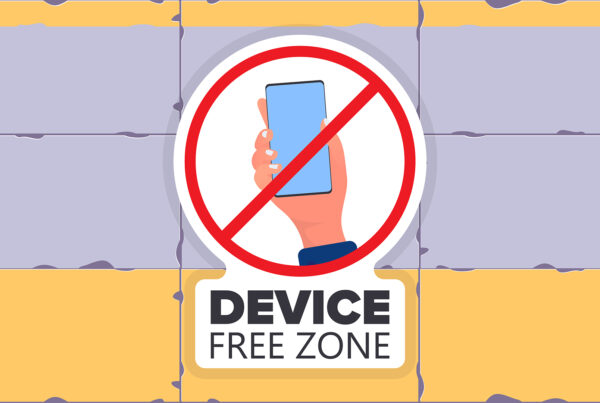The novel coronavirus continues to cripple many businesses worldwide as different companies are still unable to operate due to various lockdown measures. Individual companies were able to get their employees to work from home, which allowed them to stay in business while potentially introducing a new problem among the remote workers.
One can say that, technically, today’s remote work is “lockdown working” since the employees are forced to stay in their homes. One common problem among remote workers is cabin fever, and the lockdown made it worse since they can’t get out of their homes now to de-stress and enjoy themselves.
Remote workers have different ways to cope with cabin fever and stay productive while they’re working. However, since some businesses that have remote workers belong in regulated sectors, the companies themselves must make sure that they can still comply with regulations, even if the rules are currently relaxed. Because WhatsApp is popular among the public, it’s essential that firms can always fulfill WhatsApp MiFID and regulatory requirements in case records requests occur.

Keep Yourself Motivated During Work Hours
Cabin fever has effectively discouraged many remote workers around the world thanks to the feeling of loneliness that the lockdown brought. Several companies usually don’t allow their employees to listen to music at work since it can distract them from their work or disrupt communications in the office; however, remote workers are free from this rule.
Remote employees can play uplifting music as loud as possible to get their spirits up and motivate them to become more productive. They can also try watching motivational videos to start the day. The employees also shouldn’t spend too much of their time listening to the news, so as not to get discouraged from all the negative updates they hear regarding the virus.
Dress Appropriately for the Job
Working from home tempts people to wear whatever they want for work since their employers and managers won’t be able to see what they’re wearing outside video calls. Wearing clothes not fit for the office can keep the individual from feeling like they’re participating in a work environment and limit productivity.
Dressing for the job can affect one’s behavior and help in boosting productivity. Remote workers from the financial sector can wear the clothes they usually wear when communicating with clients so they can continue talking professionally.
Wearing proper business-attire to get an employee to communicate professionally can also potentially help the employee comply with rules by staying professional.
Keep in Touch with Friends, Loved Ones, and the Local Community
The isolation resulting from the lockdown led to many remote workers becoming stressed and losing morale. Many employees may even become unmotivated and unproductive with their work. It’s advisable to stay in touch with friends and loved ones to help eliminate feelings of loneliness.
Being able to stay in contact lets people encourage one another and bond virtually. The employees can send mobile messages or make phone calls to contact other people. Companies must be able to record SMS messages and monitor phone calls to ensure that the remote workers won’t send any insider info and questionable content.
Call monitoring allows firms to ensure that their employees don’t give away sensitive information to anyone they are talking to.
Keep Distractions to a Minimum When Working
Many remote workers, regardless of whatever sector they’re in, are also parents besides being a firm’s employees. The lockdown is a perfect time for parents to bond more with their kids, but there can be some consequences as the kids distract those who are working.
Children can be noisy, especially when left unattended, but giving them something to do can keep them from bothering anyone while enjoying themselves. Letting the kids watch videos or listen to music while wearing their headphones is one good way to keep them from being noisy.
A noisy work environment can also be distracting and hamper productivity, which is why people should minimize distractions, especially when receiving work calls. Since companies still need to comply with various regulations, call monitoring still happens, and noise reduction can help people understand each other during the call and ensure that the recordings are clear.
Use Messaging Apps with Compliance in Mind
Many people worldwide are using applications that aren’t exactly compliant with various regulations. The employees must still make sure that they aren’t violating data retention laws when sending messages and retaining them.
A former VTB Banker was charged with non-compliance after deleting his WhatsApp even though he was required to present it as part of an investigation. Remote workers shouldn’t make any mistakes similar to this, including falsifying and concealing messages. The employees shouldn’t do anything that can impede a firm’s measures to record SMS messages.
The employees belonging in regulated sectors should handle their messages as if they’re still in the office and follow company rules. Observing such rules reduces the chances of people being implicated in violating regulations. Whatsapp users in the financial sector must follow WhatsApp MiFID regulatory requirements even while working at home and using applications according to company guidelines.
Stick to Regulatory-Compliant Messaging Solutions Provided by the Company
Firms in regulated sectors have already likely invested in solutions to ensure that they comply with regulations. Remote employees should only use what the company provided to ensure that they won’t be charged with non-compliance if ever they need to provide communications data for an investigation. If the firm uses TeleMessage, then the employees shouldn’t look for means to avoid their work-related messages from being recorded.
TeleMessage captures and retains mobile content, including mobile SMS messages, voice calls, and WhatsApp chats and calls from corporate or BYOD mobile phones to ensure compliance with regulations like MiFID call recording requirements. The messages are securely and reliably retained within TeleMessage servers or forwarded to an archiving data storage vendor of your choice.
Our mobile archiving products securely record content from mobile carriers and mobile devices for a variety of ownership models (BYOD, CYOD, and employer-issued). With our multiple archiving solutions, you can always find the right tools or blend for your requirements:
TeleMessage offers cross-carrier and international mobile text & calls archiving for corporate and BYOD phones. Visit our website at www.telemessage.com to learn more about our mobile archiving products.





